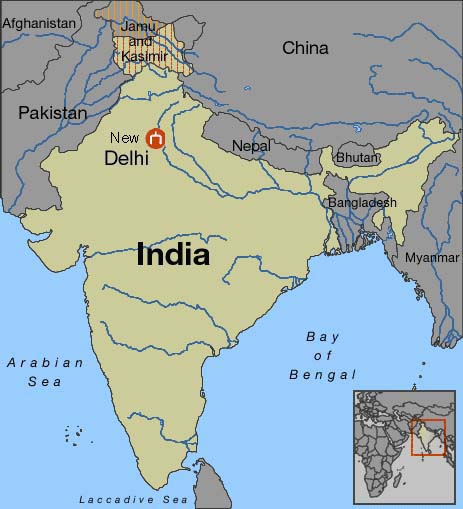Global recession, Mumbai attacks hit India tourism
 New Delhi - The Mumbai terrorist attacks, on top of a global economic recession, have come as a double whammy for India's tourism and hospitality industry.
New Delhi - The Mumbai terrorist attacks, on top of a global economic recession, have come as a double whammy for India's tourism and hospitality industry.
Only 14 of 90 rooms were occupied at one of the top luxury hotels in India's most popular tourist destination, Agra, on Thursday.
And on Wednesday, the northern Indian city saw only about 2,000 people visiting the Taj Mahal, the white marble mausoleum built by a medieval emperor for his beloved queen.
Usually in the high tourist season of Indian winter the monument draws more than 15,000 visitors each day.
"The situation is grim, to say the least, with no prospect of improvement," Rajiv Saxena, director of a travel company headquartered in Agra, said.
Saxena said he had received a call from a group in Australia who had seen an internet article that said Agra hotels were threatened and wanted their tour to be changed to bypass the city.
"Can you imagine a tourist coming to India and not visiting the Taj Mahal?" Saxena asked.
While this group's tour was still on, Saxena said she had 40 to 45 per cent cancellations since November 26, the night armed gunmen unleashed three days of mayhem in India's financial hub, Mumbai, killing more than 170 people and injuring over 300.
Among their targets were luxury hotels Taj and the twin Oberoi-Trident, where guests were killed and others held hostage until commandos rescued them after almost 60 hours of siege.
A total of 28 foreigners were among those killed in the Mumbai attacks. They included citizens of Israel, Germany, Japan, United States, Canada, Britain, Australia, France, Italy, Singapore and Japan.
Most of Saxena's cancellations are from the US, Britain and France.
"As we stepped into the high tourist season in India (November to March), we were already encountering a drop in business of about 15 per cent with the recession in the western countries, Japan, Australia, where the high-end tourists mainly come from," Vijay Thakur, president of Indian Association of Tour Operators (IATO) said.
"Now with these attacks it has probably dropped by at least another 10 per cent but we have not yet collated the details," he said.
Travel advisories put out by several countries warning of a high terrorist threat throughout India and specifically mentioning the attacks on the luxury hotels have added to the negative impact.
Thakur said heads of tour operators and hoteliers' associations had scheduled a meeting on Monday along with Tourism Ministry officials to figure out a strategy to deal with the situation over the next months. "We have to build confidence," he said.
Rajindera Kumar, vice president of the Federation of Hotels and Restaurant Associations of India (FHRAI), felt it would take time to bolster confidence. "People are worried," he said.
The hospitality industry has been harder hit with a drop of almost 20 per cent in business since the Mumbai attacks of November 26 and is struggling to give a sense of security to prospective guests.
"Business was already down by 20 per cent due to the global economic slowdown. Then the Mumbai attacks sparked huge cancellations. Our industry is down by about
40 per cent," Kumar said.
Several conferences and events had been cancelled or put on hold. Non-resident Indians who flock to India in the winter were changing plans. "Even smaller cities like Chandigarh and Punjab are seeing 20 to 30 per cent cancellations," he said.
"Foreigners are preferring what they see as safer destinations. Domestic tourism has also dropped," he said.
Hotels are making varied efforts to meet the crisis.
The industry has been cutting rates. A room in a Delhi hotel that cost around 18,000 (about 362 dollars) to 23,000 rupees a night now comes at 12,000 to 15,000. Rooms in the range of 12,000/13,000 rupees are now 9,000. Elite guest houses are coming as cheap as 4,000 rupees a night, Kumar said.
All luxury hotels across the country are upgrading security measures. "We are incorporating thorough checks at the gates and main porch. X-ray machines and metal detectors are being installed. All baggage is being thoroughly checked," Kumar said. Guests' identification papers are also being closely scrutinized.
The hotels are employing private security agencies to bolster an increased armed police presence at the entrances and perimeters. Staff have been asked to be alert and vigilant.
"But hospitality and security don't go together," said Saxena. "I think we better look to 2009-2010. This high season can be written off." (dpa)